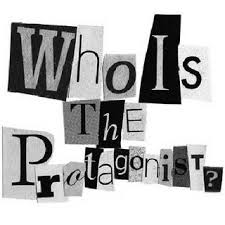记忆方法
1、prot- "first" + agon- + -ist.
2、本身的直接含义:leading person in any cause or contest. => actor who plays the chief or first part, principal character in a story, drama, etc.
3、Mistaken sense of "advocate, supporter" (1935) is from misreading of Greek protos as Latin pro- "for".
2、本身的直接含义:leading person in any cause or contest. => actor who plays the chief or first part, principal character in a story, drama, etc.
3、Mistaken sense of "advocate, supporter" (1935) is from misreading of Greek protos as Latin pro- "for".
中文词源
protagonist 主人公,主角
prota-,第一的,-agon,做,表演,词源同act,agent.
英语词源
- protagonist (n.)
- 1670s, "principal character in a story, drama, etc.," from Greek protagonistes "actor who plays the chief or first part," from protos "first" (see proto-) + agonistes "actor, competitor," from agon "contest" (see act (n.)). Meaning "leading person in any cause or contest" is from 1889. Mistaken sense of "advocate, supporter" (1935) is from misreading of Greek protos as Latin pro- "for."
权威例句
- 1. a leading protagonist of the conservation movement
- 资源保护运动的急先锋
- 2. She was herself a vehement protagonist of sexual equality.
- 她本人就热心提倡男女平等.
- 3. At the end of the story, the protagonist emerges as a powerful pugilist.
- 在故事的结尾,主角变成了一个强有力的拳击家。
- 4. The writer characterized the protagonist in his latest novel as lazy and selfish.
- 作家把他最近一部小说中主人公的性格描述成又懒惰又自私.
- 5. This is a female protagonist Kettering hand action adventure tour!
- 这是一款主角名叫凯特琳的女性动作冒险手游!

